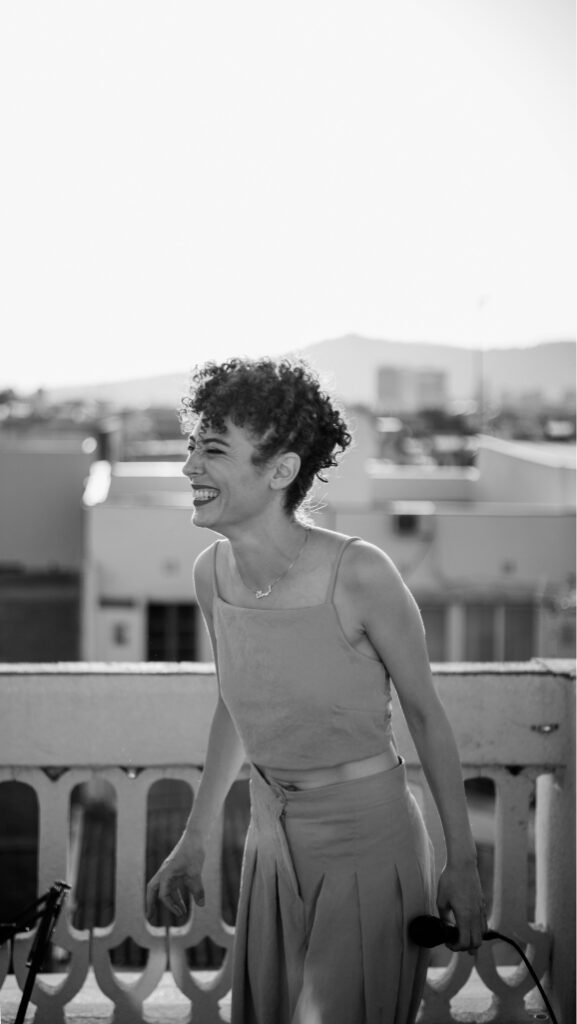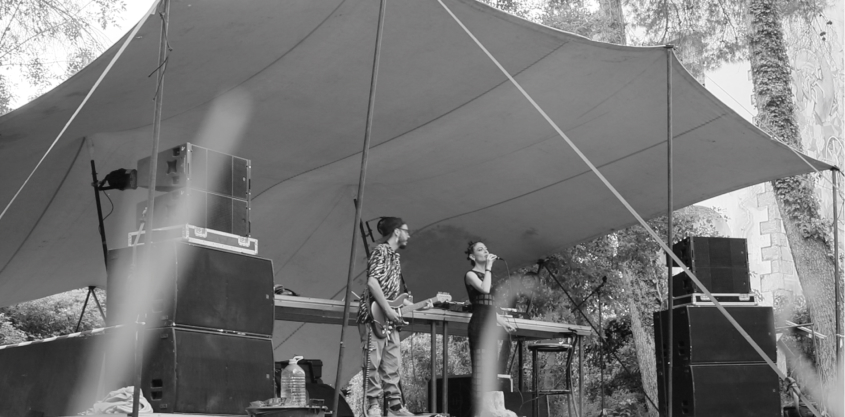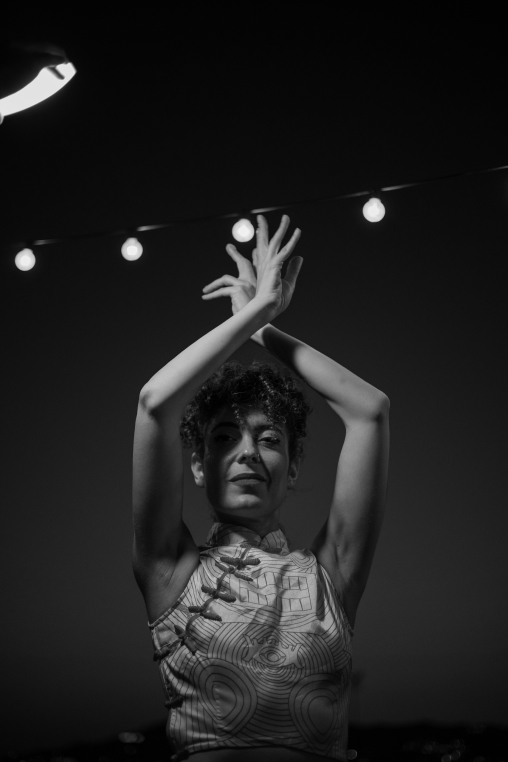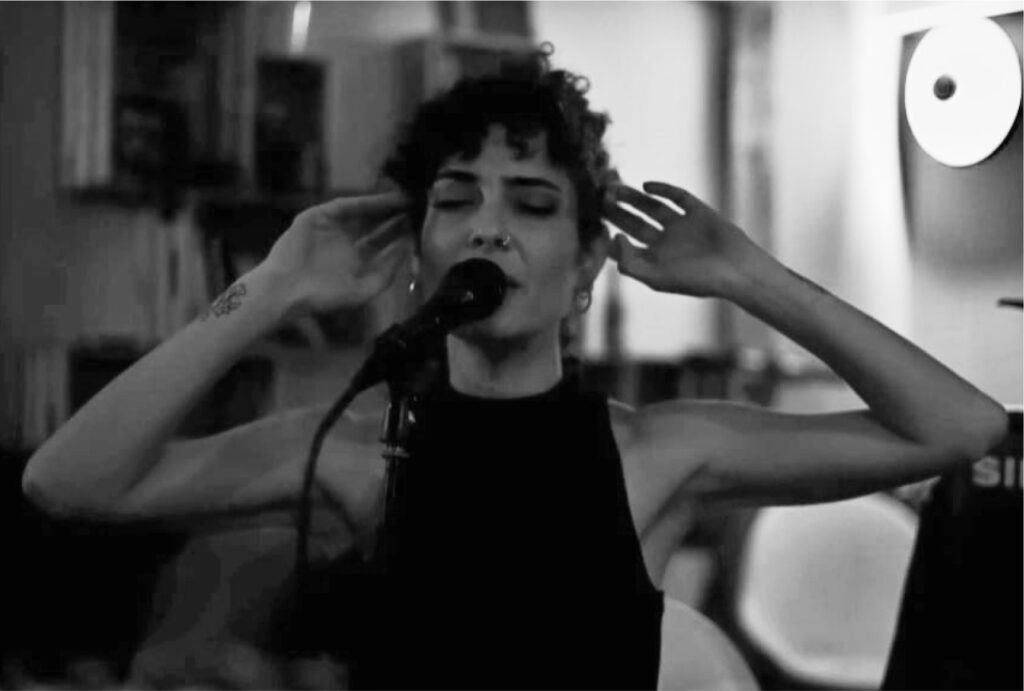About Dal-yah

Dal-Yah is of Palestinian origin. Her family was refugees before her birth and thus their family lived the migration experience. The first 10 years of their life were spent in England where they moved cities almost every year. Their journey through England included Pool, Liverpool, Birmingham, Swindon, and Chichester then back to Bournemouth, as their father tried to homogenize Egyptian his medical degree. After 10 years of movement, little luck with residency and legal status in the UK, and barriers in practicing medicine her father decided to cut his losses and apply for a work around the entire english speaking world, they refused to go through the process of learning a 3rd language, and being mocked for the shortcoming of a non-native speaker once more. The family sat and sealed their father’s resume, into a million envelopes and the search began. They finally received notice from Canada which at the time was in dire need for medical professionals in rural and remote areas. From European old country, and urbanity, their family found themselves in Clarenville, a small village in Newfoundland, surrounded by the boreal forest, which boasted a traffic light and a small mall of 10 shops. Two years later they moved to Ottawa, Ontario, which had a reputation of being a clean, safe city that was full of their arab kin. This is where their family had their first home, their first blue passport, and their first community. Dal-Yah’s itchy legs kept momentum, she decided to return to the nostalgia of her childhood, and studied a masters in London, passion for the refugee condition, propelled her into a nomadic career, finding work in Bangladesh, Laos, Lebanon and South Sudan. Upon return to Canada the desire to end the momentum of movement could not be tamed; Dal-yah finally found herself in Spain, where the journey or more the inertia of displacement has ended (hopefully).


Dal-Yah is hyphenated! Her identity is a collection of experiences not tied to place. Her music is also. The strongest spirits of this hyphen are English and Arabic; Spanish is also slowly gaining root. Her music and inspirations are 50-50. Musical influences in English were identities that looked like hers, “others” and “outsiders”. Black Music. Highschool playlists included the Wu tang clan, Jay-z and the whole Roca fella crew, Biggie, some west side artists like Warren G and Nate dogg, and a favorite, Outcast. Lyrically, she always had more affinity to the conscious side of hip hop, like Mos Def, Common and Q-Tip and was educated in the era of vocals where Eryka Badu, Sade, and Jill Scott led the way. She dove deeply into the origin of these sounds, obsessively downloading Marvin Gaye, Bill Withers, Donny Hathaway, Al Green. Always moved by the vocal greats like Billie Holiday, Nina Simone, and Ella Fitzgerald.

Dal-yah music is touching, sad, dark, bright, and always emotional. In a world where we are encouraged to say nothing, it is our responsibility as artists to say something of value! Art is human, and a space for truth, it is not a space to be polite and keep your head down, this is not an office job. Here your boss is your truth. This sensitive, intellectual, finds freedom, and her home, in her music. Dal-yah has had the pleasure of working with a variety of artists which continues to enrich her musical experience. She has been lucky to partner with some outstanding talent. Dal-yah’s ability to live in the gray and chameleon into a variety of settings, yet stay true to herself, is reflected in her musical partnerships. The influence of her mates is embraced in the band’s collective identity, and shines through in their live performances.


Arabic music was a gift from her parents, both freaks for music but neither able to consider art as a possibility. A privileged position that she is lucky to have because of their hard work. They also were deep divers, and gathered a large musical collection of Tarab and folklore. On their way to school each morning, Dal-Yah and her siblings would receive a lesson in music. Their father would pause after each sentence sung, to translate the beauty of a poem sung by Umm Kulthum or Abel Wahab. Her mother would cry while singing Fayrouz, especially songs dedicated to Palestine or Fayza Ahmed’s song for her mother. Until today Dal-yah plays classics such as Abdel Halim, Sabah, Warda, etc. in moments where she is ‘home’ sick. In university after fighting to ‘fit in’ throughout adolescence in the ‘white’ world, Dal-yah was inspired to touch the root, and did her own personal dive into the Arabic world of music consolidating the hyphenated identity.


About Dal-yah
Dal-Yah is of Palestinian origin. Her family was refugees before her birth and thus their family lived the migration experience. The first 10 years of their life were spent in England where they moved cities almost every year. Their journey through England included Pool, Liverpool, Birmingham, Swindon, and Chichester then back to Bournemouth, as their father tried to homogenize Egyptian his medical degree. After 10 years of movement, little luck with residency and legal status in the UK, and barriers in practicing medicine her father decided to cut his losses and apply for a work around the entire english speaking world, they refused to go through the process of learning a 3rd language, and being mocked for the shortcoming of a non-native speaker once more. The family sat and sealed their father’s resume, into a million envelopes and the search began. They finally received notice from Canada which at the time was in dire need for medical professionals in rural and remote areas. From European old country, and urbanity, their family found themselves in Clarenville, a small village in Newfoundland, surrounded by the boreal forest, which boasted a traffic light and a small mall of 10 shops. Two years later they moved to Ottawa, Ontario, which had a reputation of being a clean, safe city that was full of their arab kin. This is where their family had their first home, their first blue passport, and their first community. Dal-Yah’s itchy legs kept momentum, she decided to return to the nostalgia of her childhood, and studied a masters in London, passion for the refugee condition, propelled her into a nomadic career, finding work in Bangladesh, Laos, Lebanon and South Sudan. Upon return to Canada the desire to end the momentum of movement could not be tamed; Dal-yah finally found herself in Spain, where the journey or more the inertia of displacement has ended (hopefully).


Dal-Yah is hyphenated! Her identity is a collection of experiences not tied to place. Her music is also. The strongest spirits of this hyphen are English and Arabic; Spanish is also slowly gaining root. Her music and inspirations are 50-50. Musical influences in English were identities that looked like hers, “others” and “outsiders”. Black Music. Highschool playlists included the Wu tang clan, Jay-z and the whole Roca fella crew, Biggie, some west side artists like Warren G and Nate dogg, and a favorite, Outcast. Lyrically, she always had more affinity to the conscious side of hip hop, like Mos Def, Common and Q-Tip and was educated in the era of vocals where Eryka Badu, Sade, and Jill Scott led the way. She dove deeply into the origin of these sounds, obsessively downloading Marvin Gaye, Bill Withers, Donny Hathaway, Al Green. Always moved by the vocal greats like Billie Holiday, Nina Simone, and Ella Fitzgerald.
Dal-yah music is touching, sad, dark, bright, and always emotional. In a world where we are encouraged to say nothing, it is our responsibility as artists to say something of value! Art is human, and a space for truth, it is not a space to be polite and keep your head down, this is not an office job. Here your boss is your truth. This sensitive, intellectual, finds freedom, and her home, in her music. Dal-yah has had the pleasure of working with a variety of artists which continues to enrich her musical experience. She has been lucky to partner with some outstanding talent. Dal-yah’s ability to live in the gray and chameleon into a variety of settings, yet stay true to herself, is reflected in her musical partnerships. The influence of her mates is embraced in the band’s collective identity, and shines through in their live performances.

Arabic music was a gift from her parents, both freaks for music but neither able to consider art as a possibility. A privileged position that she is lucky to have because of their hard work. They also were deep divers, and gathered a large musical collection of Tarab and folklore. On their way to school each morning, Dal-Yah and her siblings would receive a lesson in music. Their father would pause after each sentence sung, to translate the beauty of a poem sung by Umm Kulthum or Abel Wahab. Her mother would cry while singing Fayrouz, especially songs dedicated to Palestine or Fayza Ahmed’s song for her mother. Until today Dal-yah plays classics such as Abdel Halim, Sabah, Warda, etc. in moments where she is ‘home’ sick. In university after fighting to ‘fit in’ throughout adolescence in the ‘white’ world, Dal-yah was inspired to touch the root, and did her own personal dive into the Arabic world of music consolidating the hyphenated identity.